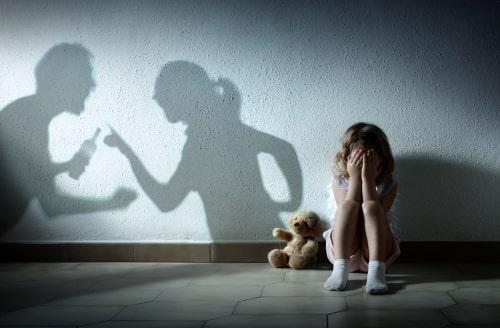 630-393-3111
630-393-3111
4200 Cantera Drive, Suite 200 | Warrenville, IL 60555
How Domestic Violence Affects Divorce Proceedings
 Illinois is a no-fault state. So, regardless of domestic behavior problems or abuse, either spouse can file for divorce at any time. Domestic violence’s impact on divorce is felt more so when it involves children. If you suspect violence or have been on the receiving end of it yourself, seek safety immediately. Once you and your children are safe, your next call should be to a trusted attorney experienced in domestic violence cases.
Illinois is a no-fault state. So, regardless of domestic behavior problems or abuse, either spouse can file for divorce at any time. Domestic violence’s impact on divorce is felt more so when it involves children. If you suspect violence or have been on the receiving end of it yourself, seek safety immediately. Once you and your children are safe, your next call should be to a trusted attorney experienced in domestic violence cases.
What Does Illinois Consider Domestic Violence?
Domestic violence is harassment, injury, or threat of injury to a family or household member. Household and family members under Illinois law:
- Blood relatives
- Married couples
- Dating couples or ex-couples no longer dating who share a home
- A roommate
- Individuals with shared children
- People with disabilities
Domestic Violence Can Affect Property Division
Physical acts of domestic violence cannot be a deciding factor in the division of property during a divorce proceeding. However, if financial abuse is involved, the court could use this information to force the abuser to pay more financial support.
An order of protection is meant to force an abuser from abusing or contacting the victim. Abusers who violate a protective order will face criminal charges. Interestingly enough, getting a protective order can also help protect your marital property and prevent financial abuse from taking place.
The Impact on Children
Children tend to be the most impacted during a divorce. A divorce consisting of domestic violence only compounds the issues for all parties involved. Not only does the abused individual and child(ren) require protection, but if proven in court, the abuser could see parental responsibilities reduced, revoked, or lost completely.
If there is evidence that a child was abused, a child witnessed the abuse of one parent from another, or the domestic violence is continuous and severe, the court is likely to award sole custody to one spouse over the other. Parenting time could also become supervised if given at all.
The court could appoint a Guardian ad Litem (GAL) to act in the child’s best interests and investigate the abuse claims. Even without an order of protection, the court could appoint a GAL to recommend a parenting schedule and how the child’s parents will need to communicate moving forward.
Protecting Yourself and Your Children
Proof of domestic violence is not required to file for divorce. However, you will need sufficient evidence to abuse if you want the court to consider it for your child’s well-being. The court will always look at any history of violence within the household when determining a child’s best interests regarding parental responsibilities.
Any indication of violence that rears its ugly head should elicit an immediate response to protect your child(ren) from harm. An order of protection to distance yourself and your child from the abuser is a good start to breaking free from a cycle of abuse.
Contact a DuPage County, IL Family Law Attorney
Sufficient representation in these sorts of situations is incredibly important and almost necessary for security and a better outcome. Consult a skilled and compassionate Naperville, IL, family law and divorce attorney whenever you sense domestic violence or danger to your child. Contact Calabrese Associates, P.C. at 630-393-3111 to set up an appointment with a knowledgeable and experienced attorney to guide you through this difficult time.


 4200 Cantera Drive, Suite 200, Warrenville, IL 60555
4200 Cantera Drive, Suite 200, Warrenville, IL 60555 630-393-3111
630-393-3111





